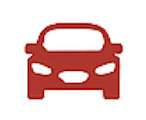A Detailed Look at the Evolving Car Culture of Botswana
Private Car Ownership and Its Rise in Botswana
Botswana has seen a steady rise in private car ownership over the past two decades, largely driven by economic growth and increasing urbanization. As more citizens move to urban centers such as Gaborone and Francistown, the need for private transport has expanded, especially given the limitations of public transit. This trend reflects broader mobility shifts occurring across southern Africa, where car ownership is often seen as a symbol of economic progress and personal success.
Second-hand vehicles from Japan dominate the used car market in Botswana due to their affordability and durability. These imports are typically purchased through direct sales, dealerships, or cross-border sourcing from Namibia and South Africa. As a result, the streets of Botswana's cities and towns are filled with Toyota, Honda, and Nissan models, many of which are older vehicles maintained well past a decade of use. The government imposes age limits on imports to maintain safety and environmental standards, but these have not curbed the popularity of Japanese used cars.
Motorsport and Enthusiast Communities
Motorsport has gained a niche but passionate following in Botswana, with drag racing and rally events drawing notable crowds. The Botswana Motor Sport (BMS) organization governs many of these activities and ensures adherence to safety protocols. One of the most popular events is the Toyota 1000 Desert Race, which has become a key fixture in the national sports calendar. Held annually, this cross-country rally tests both driver skill and vehicle endurance in Botswana's challenging terrains.
Car clubs and enthusiast groups are also active in urban areas, particularly Gaborone. These communities organize car meets, tuning sessions, and showcase events to celebrate modifications and vehicle aesthetics. Some groups focus on 4x4s and off-roading, reflecting Botswana's vast rural landscapes and the practicality of rugged vehicles in those environments. Enthusiast culture often overlaps with social media activity, where young Batswana share their passion for cars through Instagram and Facebook pages.
Public Transportation vs. Private Car Dependence
Public transportation in Botswana primarily consists of minibuses (commonly referred to as combis) and shared taxis. While affordable and widely used, these services often suffer from overcrowding and inconsistent schedules, especially outside major cities. For many residents, the limitations of public transport make private car ownership a more desirable and convenient alternative. However, this shift toward private vehicles can contribute to urban congestion, particularly during peak hours in Gaborone.
Despite the growing number of cars on the road, road infrastructure development has not always kept pace. Some intersections lack traffic signals, and poorly maintained roads are still common in peri-urban and rural zones. To address this, the Botswana government has invested in infrastructure upgrades, including road expansion and improved highway connections between cities. These efforts aim to reduce congestion and enhance road safety across the country.
Cross-Border Car Trade and Regulation
Cross-border car trade plays a significant role in Botswana's automotive landscape, particularly given its location between Namibia, Zimbabwe, and South Africa. Many Batswana travel to South Africa to purchase used vehicles at competitive prices, often taking advantage of better dealership networks and financing options. Importing these cars requires compliance with Botswana's regulations on vehicle age, emissions, and roadworthiness certification.
The Botswana Unified Revenue Service (BURS) oversees import taxes and clearance procedures, which must be completed before a vehicle can be legally registered. While the process is relatively straightforward, it still requires paperwork such as proof of purchase, customs clearance, and vehicle inspection reports. Botswana's relatively transparent import policies have contributed to a flourishing trade network, supported by logistics companies that specialize in car imports.
The Role of Number Plates and Vehicle Registration
Botswana's vehicle registration system includes a distinctive numbering format that provides insights into the origin of a car. The plates often begin with a two-letter code that identifies the district or city where the vehicle was registered, followed by a four-digit number and another letter. For example, 'B' typically denotes a vehicle registered in Gaborone. The Motor Vehicle Registration and Licensing Department under the Ministry of Transport oversees the entire process and ensures legal compliance.
Vehicle registration in Botswana is mandatory and includes an annual licensing fee, which varies depending on the engine size and vehicle class. All roadworthy vehicles must also pass regular inspections. These measures aim to maintain safety standards and track ownership changes, reducing the circulation of stolen or illegally imported vehicles. The government has introduced digital services for renewals and ownership transfers to streamline the process.
4x4s, Terrain, and Practical Automotive Choices
Botswana's geography, which includes extensive savannas, salt pans, and semi-arid deserts, influences the types of vehicles people buy. Four-wheel-drive vehicles are especially popular in rural and agricultural areas, where unpaved roads and seasonal flooding present challenges for standard sedans. Toyota Hilux and Land Cruiser models are widely regarded for their durability and ease of maintenance, making them the top choice for both farmers and safari operators.
Many tour operators use 4x4s to transport tourists through the Okavango Delta, Chobe National Park, and the Kalahari Desert. These vehicles are customized for comfort and reliability under tough conditions. Additionally, off-road vehicles are common among NGOs, government departments, and mobile clinics operating in remote regions. This widespread usage underscores the practicality of 4x4s in a country where vast distances and rugged terrain are part of daily life.
